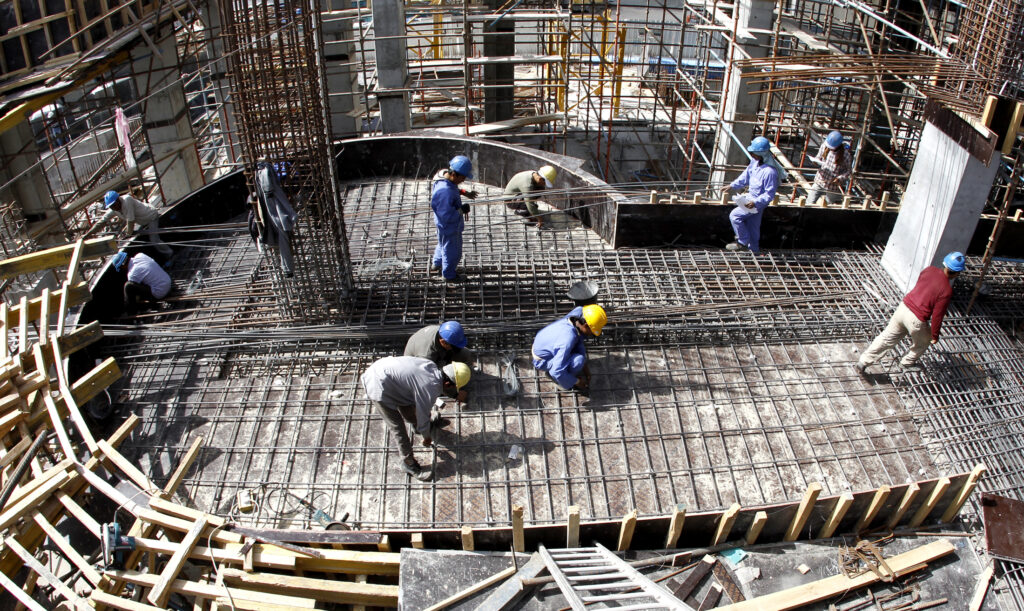
This year marks a watershed moment for democracy, as over half of the global population gears up to vote. India anticipates over 970 million eligible voters for its 2024 general election, which will be held this summer. However, India’s diaspora adds another dimension beyond its vast domestic electorate, comprising approximately 32 million individuals who cannot vote from abroad due to in-person voting requirements. This group includes 13 million Non-Residential Indians (NRIs), who are Indian citizens residing overseas for employment or education, and can vote in Indian elections only if they are physically present at polling stations. In contrast, the 18 million Overseas Citizens of India (OCIs), a status created in 2005 for foreign citizens of Indian ancestry living abroad, enjoy several privileges but cannot register to vote in Indian elections.
The Indian diaspora, the largest in the world, plays a crucial role in the country’s economy, contributing the highest global remittances at USD $111.2 billion (in 2022), bolstering India’s foreign exchange reserves and accounting for nearly three percent of India’s GDP. Their involvement has not only enhanced India’s financial standing but has also facilitated technology transfers and socio-economic development, acting as vital links between India and the world. Furthermore, the diaspora’s influence extends to “diaspora diplomacy,” where their growing affluence and advocacy abroad enhances India’s soft power. Recognizing their importance, India’s prime minister has actively engaged with the diaspora, referring to them as “brand ambassadors” pivotal in advancing India’s interests internationally.
Despite their significant contributions and the escalating challenges they face abroad, including racial and ethnic discrimination, the diaspora’s political participation remains limited due to India’s policy of in-person voting requirements and the absence of consulate or postal voting options. As the Indian diaspora continues to expand and its global influence grows, there is a pressing need for more inclusive political participation to ensure their voices are heard in shaping India’s future.
The Case for External Voting
Since the 1990s, the widespread adoption of emigrant enfranchisement or external voting —allowing non-resident citizens to partake in their home country’s elections—has been emblematic of a shift toward a more expansive notion of citizenship. By 2020, the practice of diaspora voting was embraced by 140 countries, up from 35 in 1990. This shift, fueled by the interplay of globalization, democratization, and technological advances, underscores the role of external voting as an indispensable aspect of contemporary democracy.
As the Indian diaspora continues to expand and its global influence grows, there is a pressing need for more inclusive political participation to ensure their voices are heard in shaping India’s future.
Among the large migrant-sending countries, the range of external voting policies varies significantly worldwide, ranging from inclusive to restrictive and prohibitive. Inclusive policies, seen in countries like Turkey and the Dominican Republic, allow extensive diaspora participation through voting rights and legislative representation from abroad. Conversely, restrictive policies, exemplified by India, impose barriers such as the need for physical presence at polling stations, complex registration processes, and stringent eligibility criteria, thereby limiting diaspora engagement. At the extreme end, prohibitive policies in countries like Uruguay and Ireland entirely disallow emigrant participation in elections.
The general understanding of external voting has evolved from its initial conceptualization as a mere voting procedure to being recognized as a key component of a broader diaspora strategy. Scholars view it as a strategic tool for states to foster connections with their global citizenry, acknowledging the vital roles played by diasporas, through their financial contributions and international advocacy in both the country of origin and settlement. Some scholars also argue that external voting can also be a signaling strategy used by states to demonstrate their commitment to democratic values to the international community and prominent emigrant lobbies abroad. With the steady increase in development financing and remittances from the diasporas abroad, India should consider external voting a key strategy to continue engaging the diaspora and upholding their support.
In today’s context, where NRIs often face challenges and discrimination in their host countries, external voting holds significant importance. The ability to vote from abroad offers migrants a sense of identity and belonging, while also giving them avenues to counter issues like deportation, violence, and ethnic hostilities by leveraging their home countries’ diplomatic channels. For Indian migrants, including NRIs and OCIs, the significance of external voting policies is particularly pronounced due to the well-documented human and labor rights abuses under the kafala system in the Gulf and the caste and race-based discrimination in developed Western countries. The Indian government’s response to these issues has been piecemeal due to migrants’ lack of political leverage. Therefore, migrant organizations have recognized the necessity of being recognized as a voting bloc in their home countries, which would allow migrants to advocate their interests both at home and abroad. With the Indian government’s strong diplomatic leverage globally, external voting could further incentivize it to advocate for protecting its diaspora populations with host country governments.

Challenges in Expanding Voting Rights for NRIs
The current stance of the Indian government on voting rights for NRIs is notably restrictive. While the government provides a framework for NRIs to register as voters based on the address on their passports, it insists on their physical presence at polling stations to cast their vote. This policy stems from the logistical challenges and limited capabilities of Indian foreign services to enable external voting through consulates or postal ballots, leading to less than one percent of NRIs registering to vote in 2019.
Over the last decade, there has been increasing demand from the Indian diaspora for reforms to eliminate the necessity of physical presence for voting. This issue has been brought before the Lok Sabha and the Supreme Court of India. In 2018, the Lok Sabha introduced an amendment to the Representation of People Act 1950, which would allow proxy voting for NRIs. However, it faced opposition from all parties and was not discussed in the Rajya Sabha. Subsequently, the government retracted its consideration of the proposal. In 2022, the Supreme Court directed the attorney general to facilitate overseas voting, and in 2023, the Election Commission indicated its intention to pilot postal voting for NRIs. Yet, with the 2024 general elections drawing near, progress in implementing these reforms has not been realized and the requirement for physical presence at polling stations persists.
Crafting inclusive external voting policies is a multifaceted endeavor, necessitating meticulous examination, dialogue, and debate on both procedural and broader political issues. India’s journey toward expanding external voting policies involves a comprehensive analysis of legal, normative, and socio-political factors unique to its context. This exploration could help India customize its NRI participation policies, potentially addressing key issues such as dual citizenship and OCI eligibility based on successful models from other countries. Normative considerations require a comprehensive evaluation of how diaspora voting influences domestic politics, including analyzing its legitimacy and potential demographic impacts. Additionally, procedural deliberations are essential, such as deciding in which elections (general, state, or local) voters are eligible to participate, and the logistical viability of different voting methods, such as proxy voting, postal ballots, internet voting, or consulate voting.
This exploration could help India customize its NRI participation policies, potentially addressing key issues such as dual citizenship and OCI eligibility based on successful models from other countries.
Time for Inclusivity in Voting
The relationship between India and its global diaspora necessitates policies that not only enable diaspora engagement in home country politics but also reflect India’s strategic interests in leveraging its overseas population for global influence. These considerations underscore the complex interplay of factors that India must address to develop inclusive and effective external voting policies. Establishing a foundational framework for NRI participation marks the initial step towards broader inclusivity, setting the stage for future enhancements that could extend rights to OCIs and address the broader diaspora’s needs. The widespread global implementation of external voting reflects a profound acknowledgment that citizenship extends beyond physical borders. As migration patterns intensify and demands for political inclusivity grow, the adoption of external voting would highlight India’s commitment to staying aligned with a more globalized, democratic, and technologically advanced world.
Also Read: SAV Explainer: People’s Movement to Include Ladakh Under the Sixth Schedule
***
Image 1:
Image 2: Qatar workers via Flickr


